Filter by
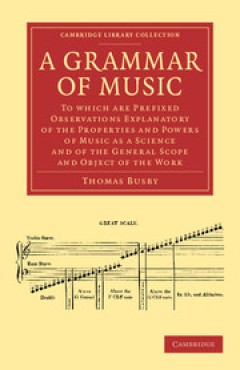
A Grammar of Music To which are Prefixed Observations Explanatory of the Pro…
The writer, composer and organist Thomas Busby (1754–1838) is best remembered for his highly entertaining Concert Room and Orchestra Anecdotes (1825), which paints a vivid picture of musical life at the time. The son of a coach painter, Busby was originally articled to the composer Jonathan Battishill but found the experience unrewarding. His compositions (many now lost) include songs, theatr…
- Edition
- -
- ISBN/ISSN
- 9781139833608
- Collation
- -
- Series Title
- Cambridge Library Collection - Music
- Call Number
- -
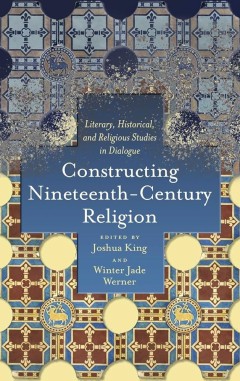
Constructing Nineteenth-Century Religion : Literary, Historical, and Religiou…
“This volume not only brings together an impressive collection of internationally renowned scholars but also offers ambitious and far-reaching conclusions that reassess what ‘religion’ meant in the nineteenth century.” —Jo Carruthers Bringing together scholars from literary, historical, and religious studies, Constructing Nineteenth-Century Religion interrogates the seemingly obvio…
- Edition
- -
- ISBN/ISSN
- 9780814213971
- Collation
- 330
- Series Title
- -
- Call Number
- 200 CON
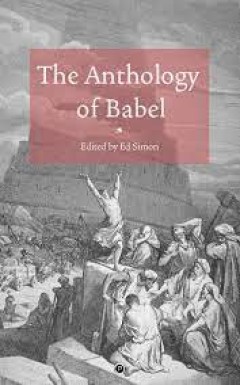
The Anthology of Babel
Why should there only be literary scholarship about authors who actually lived, and texts which exist? Where are the articles on Enoch Campion, Linus Withold, Redondo Panza, Darshan Singh, or Heidi B. Morton? That none of these are real authors should be no impediment to interpreting their invented writings. In the first collection of its kind, The Anthology of Babel publishes academic articles…
- Edition
- -
- ISBN/ISSN
- 9781950192472
- Collation
- -
- Series Title
- -
- Call Number
- -

Wonder, Horror, Mystery: Letters on Cinema and Religion in Malick, Von Trier,…
Wonder, Horror, Mystery is a dialogue between two friends, both notable arts critics, that takes the form of a series of letters about movies and religion. One of the friends, J.M. Tyree, is a film critic, creative writer, and agnostic, while the other, Morgan Meis, is a philosophy PhD, art critic, and practicing Catholic. The question of cinema is raised here in a spirit of friendly friction t…
- Edition
- -
- ISBN/ISSN
- 9781685710095
- Collation
- -
- Series Title
- -
- Call Number
- -

The African-Jamaican Aesthetic : Cultural Retention and Transformation Across…
The African-Jamaican Aesthetic explores the ways in which diasporic African-Jamaican writers employ cultural referents aesthetically in their literary works to challenge dominant European literary discourses; articulate concerns about racialization and belonging; and preserve and enact cultural continuities in their new environment(s). The creative works considered provide insight into how loca…
- Edition
- -
- ISBN/ISSN
- 9789004342330
- Collation
- -
- Series Title
- Cross/Cultures, Volume: 196
- Call Number
- 306 TOM a
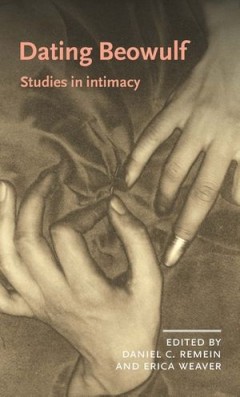
Dating Beowulf : Studies in intimacy
Featuring essays from some of the most prominent voices in early medieval English studies, Dating Beowulf: studies in intimacy playfully redeploys the word ‘dating’, which usually heralds some of the most divisive critical impasses in the field, to provocatively phrase a set of new relationships with an Old English poem. This volume presents an argument for the relevance of the early Middle…
- Edition
- -
- ISBN/ISSN
- 9781526136442
- Collation
- 344 halaman
- Series Title
- Manchester Medieval Literature and Culture
- Call Number
- 800 DAT
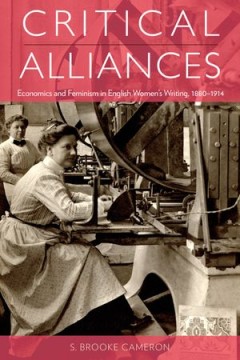
Critical Alliances : Economics and Feminism in English Women’s Writing, 188…
Critical Alliances argues that late-Victorian and modernist feminist authors saw in literary representations of female collaboration an opportunity to produce new gender and economic roles for women. It is not often that one thinks of female allegiances – such as kinship networks, cultural inheritance, or lesbian marriage – as influencing the marketplace; nor does one often think of economi…
- Edition
- -
- ISBN/ISSN
- 9781442637559
- Collation
- 312 halaman
- Series Title
- -
- Call Number
- 800 CAM c
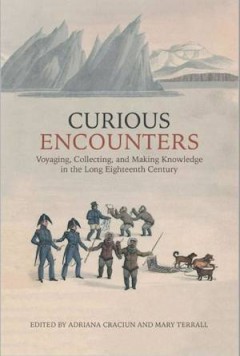
Curious Encounters : Voyaging, Collecting, and Making Knowledge in the Long E…
Curious Encounters uncovers a rich history of global voyaging, collecting, and scientific exploration in the long eighteenth century. Voyagers from Greenland to the Ottoman empire crossed paths with French, British, Polynesian, and Spanish travelers across the world, trading objects and knowledge for diverse ends. The essays in this collection restore our understanding of the encounters between…
- Edition
- -
- ISBN/ISSN
- 9781487503673
- Collation
- -
- Series Title
- -
- Call Number
- 800 CRA c
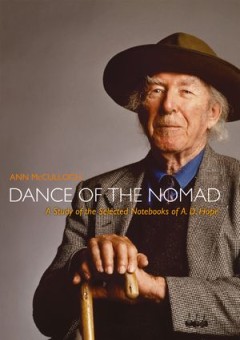
Dance of the Nomad : A Study of the Selected Notebooks of A.D.Hope
The notebooks of A. D. Hope are a portrait of the contradictory essence of the poet’s intellect and character. Shot through with threads of self-awareness and revelation, Hope imbued his notebooks with irony and humour, forming them as a celebration of the joy and terror of human existence. Stripped of intimate revelation, the entries give witness to Hope’s view that art is a superior force…
- Edition
- -
- ISBN/ISSN
- 9781921666919
- Collation
- -
- Series Title
- -
- Call Number
- 800 MCC d
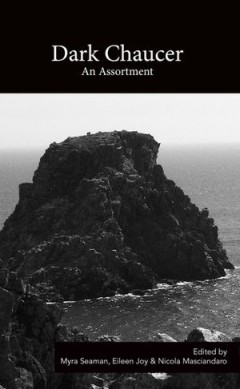
Dark Chaucer : An Assortment
Although widely beloved for its playfulness and comic sensibility, Chaucer’s poetry is also subtly shot through with dark moments that open into obscure and irresolvably haunting vistas, passages into which one might fall head-first and never reach the abyssal bottom, scenes and events where everything could possibly go horribly wrong or where everything that matters seems, if even momentaril…
- Edition
- -
- ISBN/ISSN
- 9780615701073
- Collation
- 224 halaman
- Series Title
- -
- Call Number
- 800 DAR
 Computer Science, Information & General Works
Computer Science, Information & General Works  Philosophy & Psychology
Philosophy & Psychology  Religion
Religion  Social Sciences
Social Sciences  Language
Language  Pure Science
Pure Science  Applied Sciences
Applied Sciences  Art & Recreation
Art & Recreation  Literature
Literature  History & Geography
History & Geography